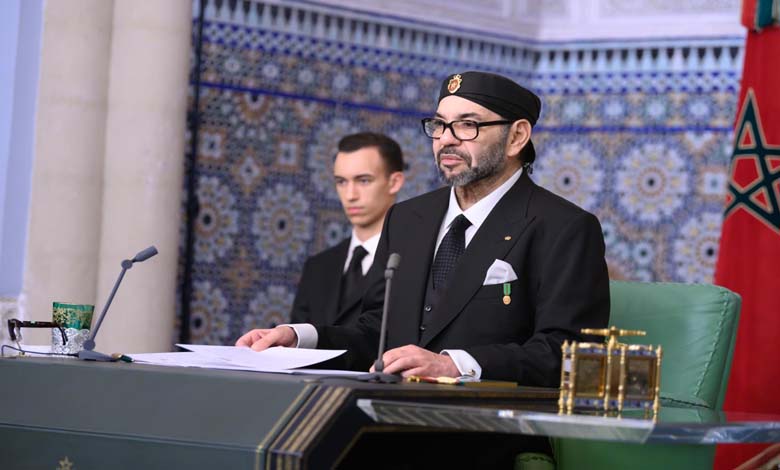The Royal Momentum of the King of Morocco Leads to a New Achievement: Ghana Freezes its Recognition of the Polisario

The African country deals a heavy blow to separatists by suspending diplomatic relations with them and affirming its support for Morocco’s efforts in the Sahara autonomy project.
The significant achievement of Morocco’s King Mohammed VI, fueled by his consistent drive for the Sahara issue, marks a new diplomatic victory for the Kingdom. This is exemplified by the Republic of Ghana’s announcement of suspending diplomatic relations with the Polisario Front and expressing its support for Rabat’s efforts in the autonomy project for the Sahara region.
-
2024… A Year of Morocco’s Diplomatic Triumphs and Strengthened Sovereignty over the Sahara
-
Morocco Strengthens Broader Military Cooperation with Gulf States
The decision was announced in an official document issued by Ghana’s Ministry of Foreign Affairs and Regional Integration, addressed to Morocco’s Ministry of Foreign Affairs, African Cooperation, and Moroccan Expatriates.
Ghana stated that it would immediately inform the Moroccan government, the African Union, and the United Nations of this position through diplomatic channels.
In the same official document, Ghana expressed its support for the “sincere efforts undertaken by the Kingdom of Morocco to reach a solution acceptable to all parties.”
-
Morocco: The Most Qualified to Represent Africa at the Security Council
-
Morocco Strengthens Connectivity with Sub-Saharan Africa through a Maritime Line between Agadir and Dakar
Ghana, a key pillar of the English-speaking Anglo-Saxon bloc in Africa, has historically been one of the staunchest supporters of the Polisario. Its withdrawal of recognition marks a significant milestone in Moroccan diplomacy, led by King Mohammed VI, aimed at solidifying the Kingdom’s territorial integrity and reinforcing the autonomy initiative.
This decision represents a major setback for the separatists and Algeria, which had sent its Foreign Minister Ahmed Attaf on an African tour last August, including stops in Ghana, Nigeria, and Benin, in an attempt to regain diplomatic ground against Morocco’s growing influence.
-
Xi’s Visit to Rabat Reflects China’s Growing Interest in Strengthening Cooperation with Morocco
-
Morocco Expands Awareness of the Moroccan Sahara in Central America
The Republic of Ghana, located along the Gulf of Guinea and the Atlantic Ocean in West Africa, had recognized the Polisario in 1979. However, this shift reflects the effectiveness of Morocco’s diplomatic efforts, significantly bolstered by King Mohammed VI‘s leadership on the Sahara issue.
Data indicates that 46 countries, including 13 African nations, have cut or suspended ties with the Polisario since 2000, showcasing Morocco’s diplomatic success in garnering international support for the Moroccan Sahara cause.
-
Gulf Mediation for Morocco-Iran Reconciliation Alarms Algeria
-
High Confidence in Morocco Recognized with the Election of its Candidate as Interpol Africa’s Vice President
Last week, Ghana also announced the removal of visa requirements for citizens of all African countries, including Morocco, starting at the end of 2024. As of 2025, Moroccan citizens will be able to travel to Ghana without obtaining a prior visa. This decision aligns with Ghana’s efforts to advance the African Continental Free Trade Area and facilitate mobility between African nations.
This initiative is expected to strengthen diplomatic and economic ties between Morocco and Ghana, opening new opportunities for Moroccan investors to explore Ghana’s economic potential.
-
Morocco and Mauritania Explore New Avenues for Military Cooperation
-
Extension of MINURSO Mission: Diplomatic Victory for Morocco and Setback for Algeria
Since Morocco’s return to the African Union in January 2017, Moroccan-Ghanaian relations have seen significant growth. Shortly afterward, King Mohammed VI conducted an official visit to Ghana’s capital, Accra, leading a high-level delegation. This historic visit resulted in the signing of 25 agreements covering various fields and sectors, including investment, agricultural cooperation, industry, tourism, transport, and renewable energy.












